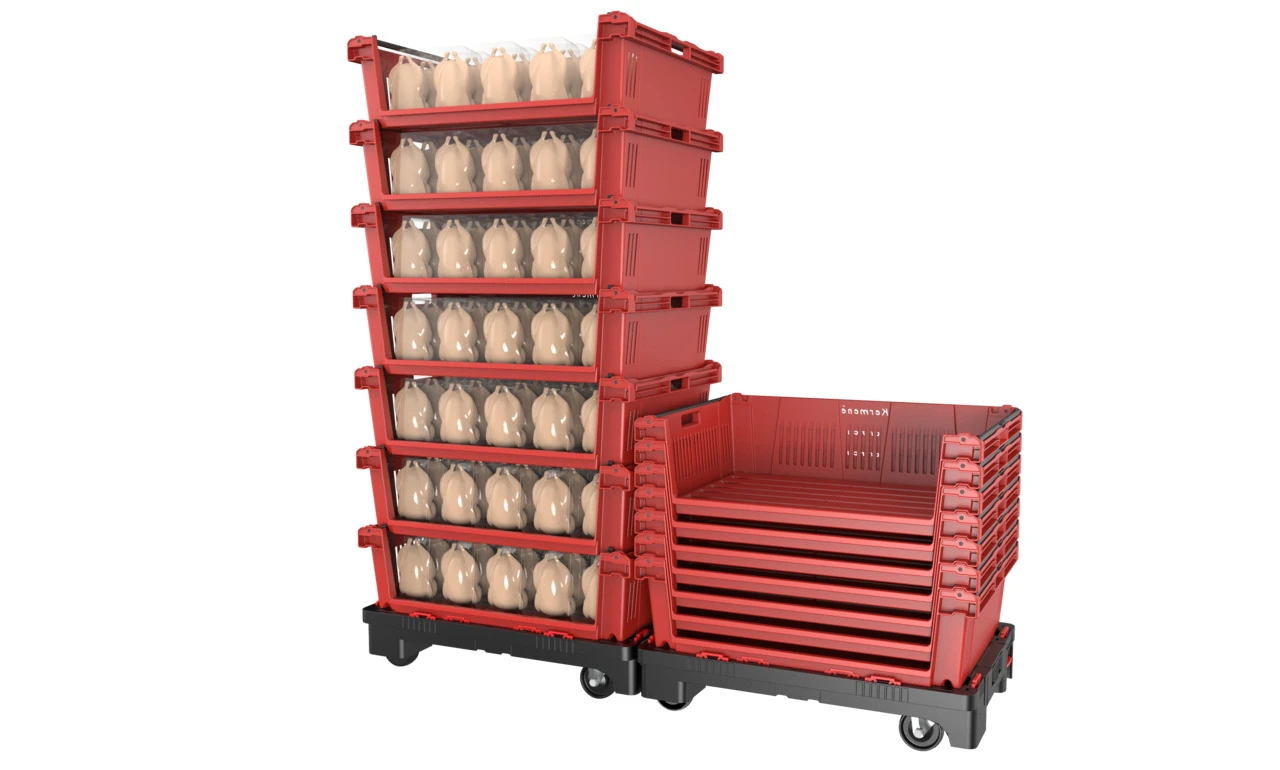The meat supply chain could prove key in grocery Net Zero, says Schoeller Allibert

Contact us
Get in touchSchoeller Allibert, a market leader in sustainable returnable logistics packaging, has shared its perspective on how the meat supply chain could support grocery brand partners in reaching Net Zero emission targets.
Working with both food manufacturing brands and retailers, the organisation is afforded a ‘big picture’ view of value chain sustainability, and believes that the meat supply chain could help grocery retailers expedite their carbon goals.
Nick James, Sales Director, at Schoeller Allibert, explains: “From the smallest independent retailers to the largest international brands, the race to Net Zero is firmly atop the agenda. Across the big name grocery retailers, we are seeing initiatives rolling out designed to reduce carbon emissions on an enormous scale. With consumers now more engaged with ‘food miles’ and where their purchases come from, the meat supply chain is under the microscope. Interestingly, though, the meat supply chain could be one of the biggest areas of growth in terms of sustainability.
“From farm to fork, the meat industry is making gains in areas such as greenhouse gas emissions and carbon output. In fact, a 2021 report from waste reduction charity Wrap confirmed that the meat sector has been making encouraging gains in tackling climate change, including up to 30% reduction in Scope 1 and 2 carbon emission intensity. When we talk sustainability, supply chain and logistics is often front and centre of dialogue. For our part, we have seen a strong uptake in our sustainable transit packaging, which helps to create a stronger and more circular supply chain. With the strong environmental momentum that the meat industry is gaining, we believe that it will play a key role in supporting Net Zero for the wider grocery industry.”
Schoeller Allibert is a pioneering name in reusable transit packaging. The business develops and manufactures a diverse range of high performance handheld and large containers, as well as pallets and dollies, all constructed from durable recycled plastic.
The range is built to withstand the food production and manufacturing environments and is designed to enhance supply chain operations and boost transparency, while protecting produce through the supply chain and transit.
James adds: “When we create a slicker supply chain that minimises waste and makes optimal use of resources, it all contributes towards the bigger Net Zero goal. We have seen incredible progress made in the meat supply chain, and from our point of view, we believe this will be pivotal in supporting grocery retailers on their own sustainability path.
“Naturally, we look forward to seeing more businesses rise to the occasion and take a supply chain-first approach to sustainable development. For too long we’ve seen sustainability and performance as mutually exclusive, but today, efficiency and CO2 reduction can go hand in hand.”
Contact us
Get in touchContact us
Inspiration
Related
relevantItems.news.intro
Navigating EU Sustainability Regulations in Transport Packaging—A Roadmap for Compliance and Opportunity
We’re thrilled to introduce our latest whitepaper: New EU sustainability regulations and their impact on packaging. Designed as your essential resource, this whitepaper breaks down the complex, changing landscape of EU s...
Read newsHere's why our beverage crates are the future
Beverage crates may have a long tradition, but don’t think they’re a thing of the past. In fact, they represent the future. As sustainability becomes a top priority, more and more producers are shifting away from single-...
Read newsSchoeller Allibert confirms huge opportunity for returnable packaging industry
Schoeller Allibert UK has indicated that a ‘perfect storm’ is brewing in the UK warehousing and logistics sector, irrespective of Brexit.
Read news

